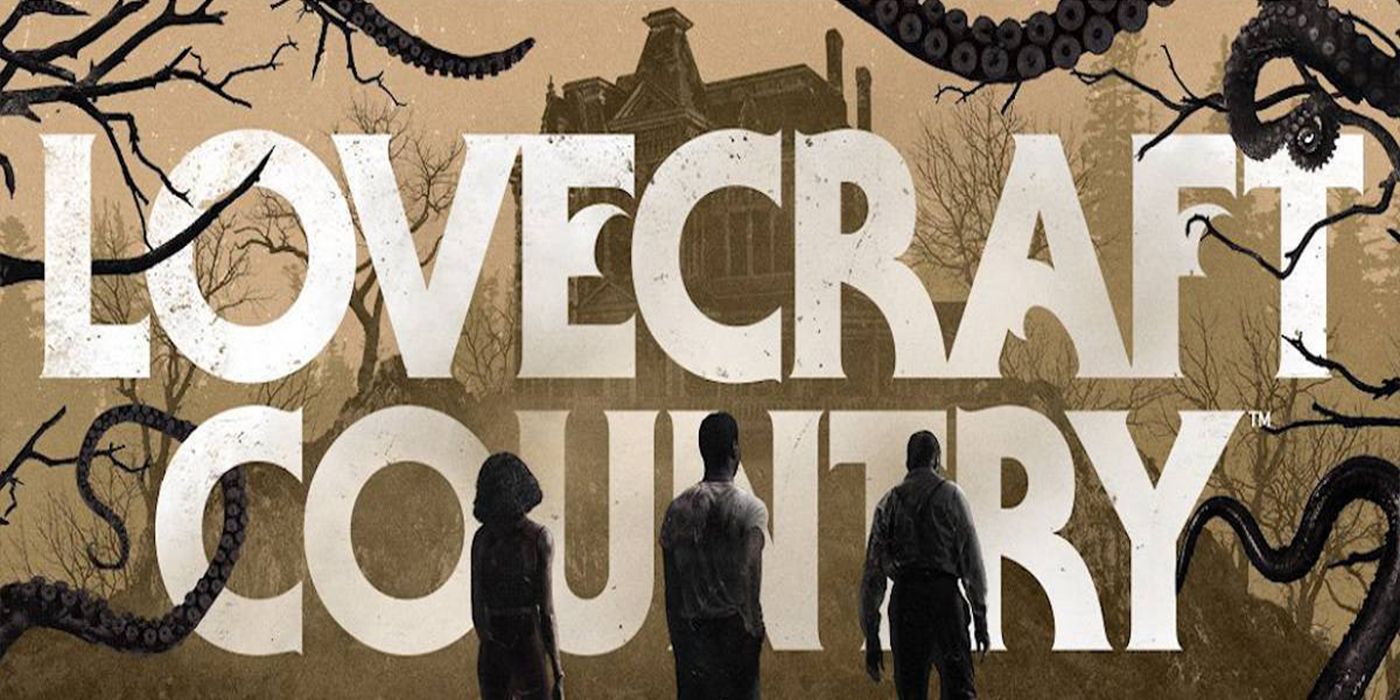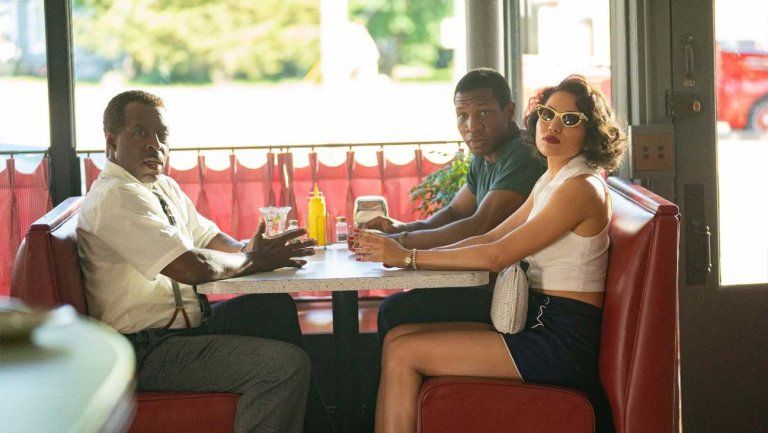With all the TV commercials, industry buzz, and big names like Jordan Peele and J. J. Abrams attached, it's been difficult not to have an eye out for HBO's upcoming Lovecraft Country, a television adaptation of the novel by Matt Ruff. The main thrust of the story is about a young Black man traveling the U.S. during the era of Jim Crow in search of his lost father. Viewers intrigued by the premise may be asking themselves what Lovecraft is, or how it's connected to the story.
While trailers and press interviews have not emphasized the connection much, possibly in fear of spoilers, the original novel is based heavily in the crossover between H.P. Lovecraft's horror styling and the horror of living within a segregated society. The story heavily and repeatedly contrasts the terror of surreal monsters with the terror of living as a subject to unending racial bigotry. One of the novel's main themes, as is true with many horror works, is the idea that true horror is the product of humanity, not otherworldly beings. Still, there are things to know before diving into the show when it airs in mid-August.
1. Lovecraft Country is Based on a Novel by Matt Ruff
Lovecraft Country was originally written and released in 2017 to positive fan and critical reception. Framed as a combination novel and short story collection, the book follows Atticus, a Black Korean War veteran, as he attempts to find his father who disappeared in Massachusetts, all the while facing a combination of otherworldly foes and everyday bigotry. The first quarter of the book follows his story, and then things shift into a series of smaller individual stories where various characters face their own supernatural encounters. Atticus is also a Lovecraft fan, while his father is very aware of the racist undertones of such classic horror pulp. In the end, it is their knowledge of awareness of such racism that allows them to thwart it. Lovecraft Country was nominated for a World Fantasy Award in 2017. Ruff has also written a set of expansion rules for Dungeons & Dragons, as well as a "political variant/satire" of Magic: The Gathering called Congress: The Gathering.
2. H. P. Lovecraft Was An Incredibly Influential Horror Writer
Audiences are likely familiar with the name H. P. Lovecraft, or at least Cthulhu, his most famous and longstanding creation. Lovecraft's life, however, is a bit less celebrated. Despite his rather high profile and famous body of work, Lovecraft spent most of his life writing in obscurity and struggling economically. Though he found meager success with a few of his stories, he was not truly discovered until after his death in 1937, and even then not until several decades later, when he found an audience as a cult hit around the 1960's. Some of this is due to Lovecraft himself, who was fairly reclusive, disliked busy environments, and often reacted sensitively to rejection, opting to give up on many of his works after initial publishing failures. His writing seemed to be inspired by his general state in life at the time, with his protagonists often finding themselves feeling overwhelmed and insignificant in a way that seemed to reflect Lovecraft's own private struggles.
Lovecraft's horror, however, is unique in its themes and messages. Where many horror writers would create awful villains to scare and terrify readers, the true horror of Lovecraft's work was not the power or danger of its monsters, but rather the insignificance of mankind. The ancient gods and powerful beings were not scary because of what they looked like or could do, (in fact Lovecraft often went out of his way to leave descriptions vague and implicit) they were terrifying because they were so far beyond humanity that they were completely indifferent to human existence. To them humanity was nothing more than a cosmic speck of dust, and the idea that human civilization could be so thoroughly, utterly unimportant, was a horror all its own.
3. H. P. Lovecraft Was Extremely Racist
Unfortunately Lovecraft's work was heavily influenced not just by his private anxieties, but also by his very public paranoia and bigotry. Lovecraft was a man of many political beliefs that changed quite drastically over the span of his life, but his racism and general xenophobia is difficult to overstate. He often argued for segregation, and viewed Black people as literal sub-humans, quite famously naming his own cat after a racial slur. His racism was quite extreme and outspoken, even for the time period, and often seeped into his work, with stories about dangerous outsiders overtaking peaceful communities. The final plot twist of the story Medusa's Coil, meant to horrify and shock the reader, is quite simply that the woman described was actually Black the whole time.
While Lovecraft's work undoubtedly has quite a lot of merit as a unique voice in the horror genre, his views on race are impossible to separate from the majority of his work. This has actually worked to support Lovecraft Country to some extent, allowing the text to be a more critical look at racial issues that burrowed into horror fiction. No doubt the upcoming adaptation will be working to address those themes in some respect, though the creators do not seem to have commented directly on the issue as of this article's writing.
4. It's Still OK to Be Excited for Lovecraft Country
The question of how to engage with problematic source material often comes up when discussing creators who have controversial opinions, and it's never an easy one to answer. To refuse to engage with Lovecraft is to shut oneself out of experiencing one of the 21st century's most influential horror writers, but to promote him uncritically also risks promoting his most noxious and troublesome viewpoints. Something like Lovecraft Country may serve as an interesting statement on the issue, dragging both Lovecraft's legacy and racial views onto the table to be discussed openly, and directly. It's impossible to say for sure until the show finally premieres. In the meantime, audiences can feel more prepared to dive in with a little historical context on their side when the horror finally kicks off on HBO in August.
Lovecraft Country will premiere August 16th on HBO and HBO Max.


